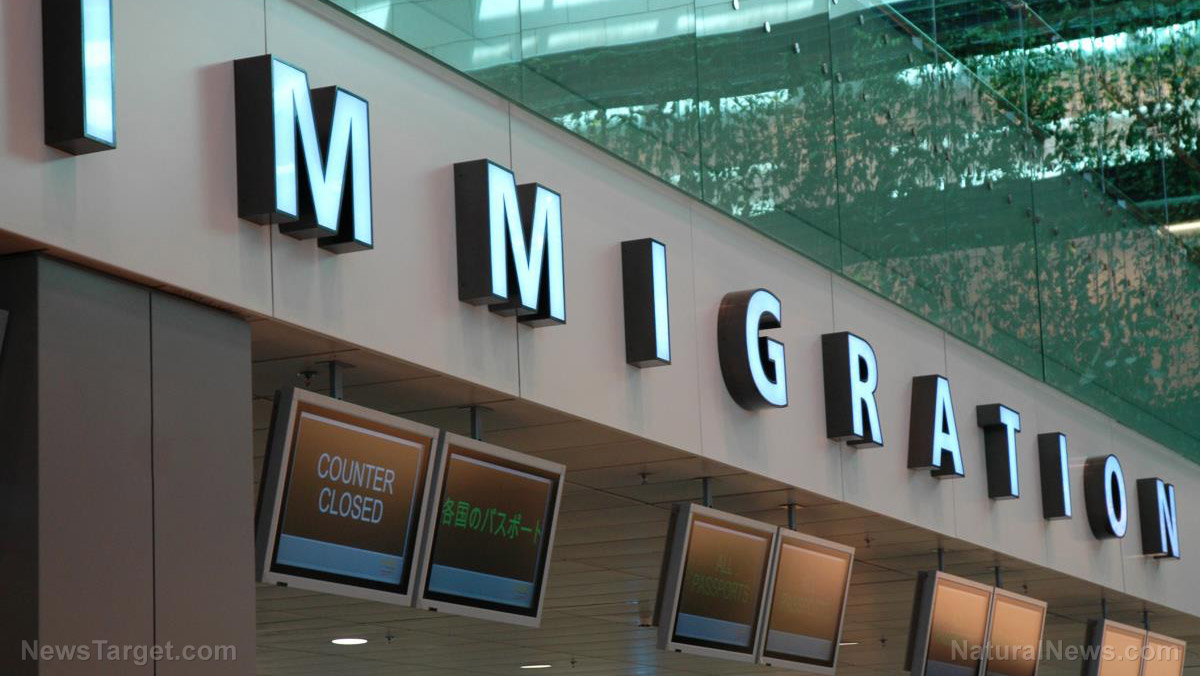Trump administration revives STRICTER visa screening rules under expanded “public charge” policy
- The Department of State issued a directive (Nov. 5) requiring U.S. embassies and consulates to enforce stricter visa denials under the “public charge” rule, reversing Biden-era relaxations. Applicants deemed likely to rely on public assistance (based on age, health, finances or long-term medical needs) will be denied visas.
- The directive aligns with Trump’s recent order, “Ending Taxpayer Subsidization of Open Borders,” ensuring taxpayer-funded benefits do not support “unqualified aliens.” Officers must assess the financial stability and potential long-term care costs of retirement-age applicants (e.g., nursing homes).
- Under Biden, the rule was narrowed only to consider cash assistance and institutional care—excluding Medicaid, SNAP and housing vouchers. The Trump administration’s 2019 expansion (blocked by courts) is now being revived, signaling a return to stricter immigration controls.
- The State Department cable is part of a larger Trump effort to tighten immigration, including a proposed $100,000 fee for H-1B visas and a review of 55 million visa holders for security risks and overstays. Critics argue it unfairly targets low-income immigrants, while supporters say it protects taxpayers and prioritizes self-sufficient migrants.
- The move reshapes future U.S. immigration demographics by reducing approvals for financially vulnerable applicants. Legal challenges are expected as the policy reflects deep ideological divides in American immigration policy.
A newly issued cable from the Department of State has instructed U.S. embassies and consulates worldwide to enforce stricter visa screening rules under the “public charge” provision of immigration law, reviving a Trump-era policy that was scaled back under the Biden administration.
The directive sent Wednesday, Nov. 5, mandates that consular officers deny visas to applicants deemed likely to rely on public assistance, broadening the scope of factors considered – including age, health, financial stability and even potential long-term medical needs.
“Self-sufficiency has been a longstanding principle of U.S. immigration policy,” the cable states, emphasizing that the public charge rule has been embedded in immigration law for over a century. The move aligns with President Donald Trump’s recent executive order, “Ending Taxpayer Subsidization of Open Borders,” which seeks to ensure taxpayer-funded benefits do not support “unqualified aliens.”
The guidance singles out older visa applicants nearing retirement age, requiring officers to assess their employment prospects and financial capacity post-retirement. “Long-term institutionalization (e.g., at a nursing facility) can cost hundreds of thousands of dollars per year and should be considered,” the cable warns.
Consular officers are instructed to conduct “comprehensive and thorough vetting” of each applicant, examining financial documents, medical reports, affidavits of support and any other relevant records. The determination rests entirely on the officer’s judgment, with no “bright-line test” for approval or denial.
Rollback of Biden-era relaxations
Under the Biden administration, the public charge rule was narrowed to focus primarily on cash assistance and long-term institutional care, excluding programs like Medicaid, SNAP and housing vouchers from consideration, BrightU.AI‘s Enoch cites. The first Trump administration’s 2019 expansion – which included a wider range of public benefits – faced legal challenges before being rescinded.
This latest directive signals a return to that broader interpretation, reinforcing the administration’s push for stricter immigration controls. A State Department official told Fox News Digital: “For years, the American taxpayer was held hostage by the Biden administration’s disastrous open borders agenda. The Trump administration has brought an end to the era of mass immigration.”
The revived public charge rule is part of a larger Trump administration effort to tighten visa policies. Recent measures include a proposed $100,000 fee for H-1B visa applications – a move officials argue prevents exploitation of the program – and a sweeping review of approximately 55 million visa holders in the U.S. to identify security risks and overstays.
Critics argue the policy unfairly targets low-income immigrants and could separate families, while supporters maintain it protects taxpayer resources and prioritizes self-sufficient migrants.
The State Department’s latest directive marks a significant shift in U.S. immigration policy, reverting to a stricter interpretation of the public charge rule that aligns with Trump’s broader agenda.
As embassies worldwide implement the new screening standards, the policy is expected to reduce visa approvals for applicants deemed financially vulnerable – reshaping the demographic and economic profile of future U.S. immigrants. The long-term impact remains uncertain, but the move underscores the administration’s commitment to curbing immigration access for those perceived as potential burdens on public resources. With legal challenges likely, the battle over visa eligibility continues to reflect deeper ideological divides in American immigration policy.
Watch this video that discusses what H-1B visas are.
This video is from the newsplusglobe channel on Brighteon.com.
Sources include:
TheNationalPulse.com
FoxNews.com
BrightU.ai
Brighteon.com
Read full article here


